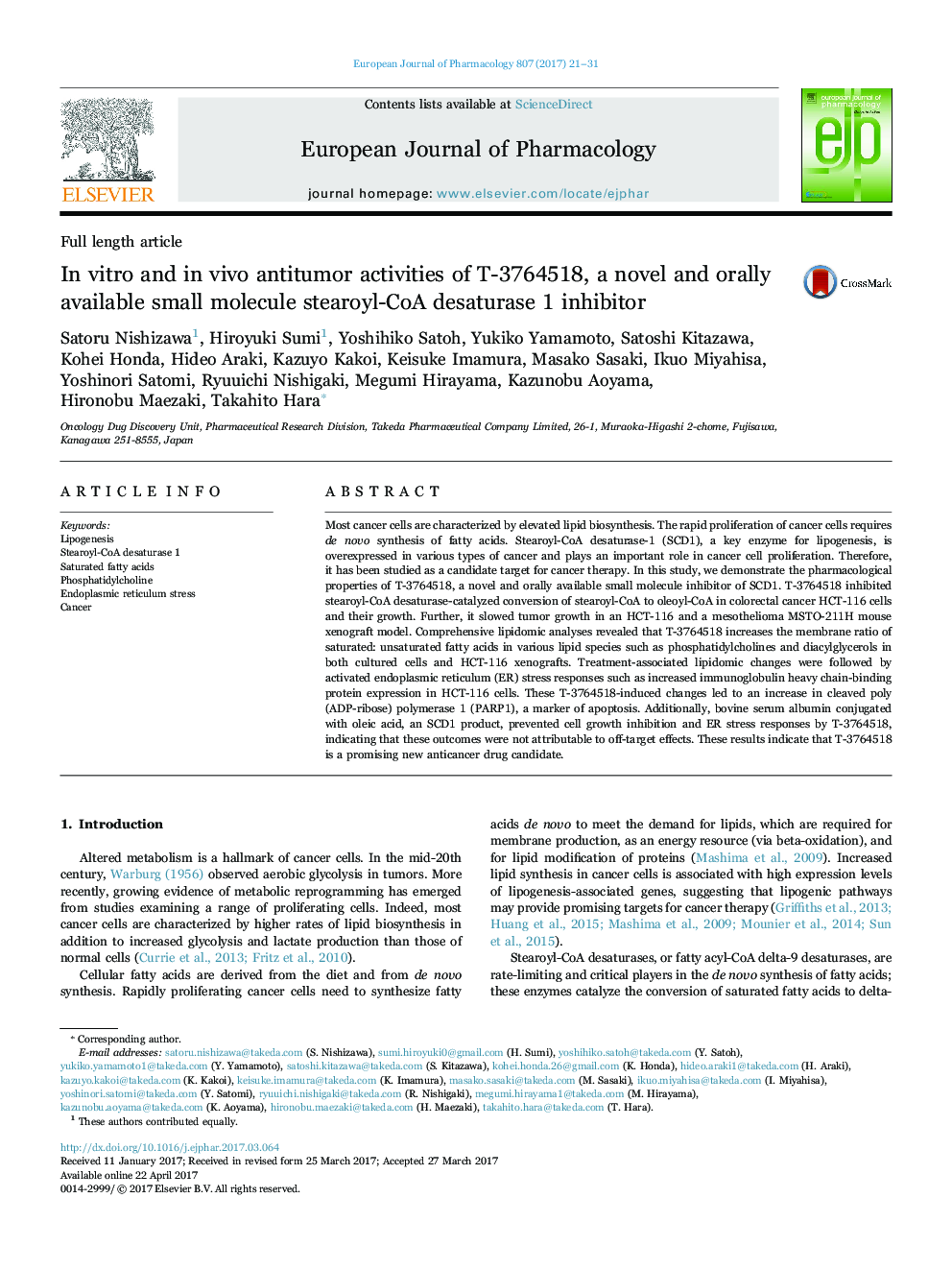| Article ID | Journal | Published Year | Pages | File Type |
|---|---|---|---|---|
| 5554561 | European Journal of Pharmacology | 2017 | 11 Pages |
Most cancer cells are characterized by elevated lipid biosynthesis. The rapid proliferation of cancer cells requires de novo synthesis of fatty acids. Stearoyl-CoA desaturase-1 (SCD1), a key enzyme for lipogenesis, is overexpressed in various types of cancer and plays an important role in cancer cell proliferation. Therefore, it has been studied as a candidate target for cancer therapy. In this study, we demonstrate the pharmacological properties of T-3764518, a novel and orally available small molecule inhibitor of SCD1. T-3764518 inhibited stearoyl-CoA desaturase-catalyzed conversion of stearoyl-CoA to oleoyl-CoA in colorectal cancer HCT-116 cells and their growth. Further, it slowed tumor growth in an HCT-116 and a mesothelioma MSTO-211H mouse xenograft model. Comprehensive lipidomic analyses revealed that T-3764518 increases the membrane ratio of saturated: unsaturated fatty acids in various lipid species such as phosphatidylcholines and diacylglycerols in both cultured cells and HCT-116 xenografts. Treatment-associated lipidomic changes were followed by activated endoplasmic reticulum (ER) stress responses such as increased immunoglobulin heavy chain-binding protein expression in HCT-116 cells. These T-3764518-induced changes led to an increase in cleaved poly (ADP-ribose) polymerase 1 (PARP1), a marker of apoptosis. Additionally, bovine serum albumin conjugated with oleic acid, an SCD1 product, prevented cell growth inhibition and ER stress responses by T-3764518, indicating that these outcomes were not attributable to off-target effects. These results indicate that T-3764518 is a promising new anticancer drug candidate.
